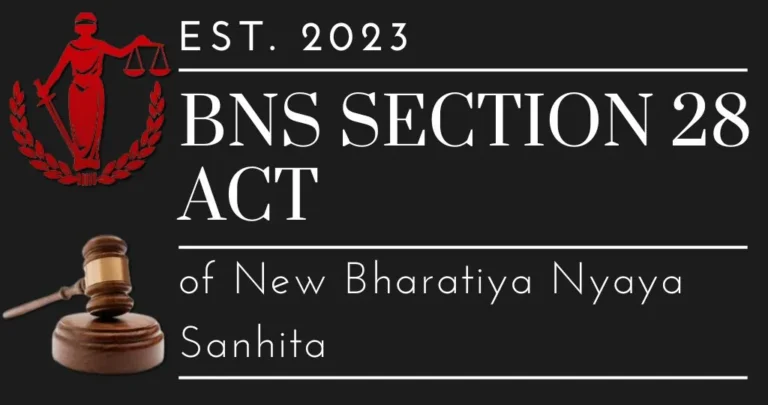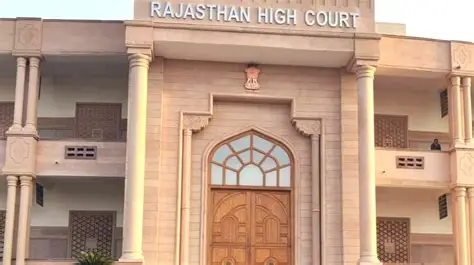
Understanding the Offences of Offering and Accepting Gratification for Concealing Crime Under Bharatiya Nyaya Sanhita, 2023
Title: Interpretation of the Offences of Giving and Taking Gratification for Concealing Crime Under Bharatiya Nyaya Sanhita, 2023
The Bharatiya Nyaya Sanhita, 2023, which was enacted on 1st July 2024, has superseded the Indian Penal Code. It brings in several provisions to check corruption and maintain the integrity of the criminal justice system. Sub-sections 250, 251, and 252 of this new Sanhita address instances where people accept or give gratification in relation to covering up crimes, safeguarding criminals from legal action, or retrieving plundered property. These sections specify certain punishments for such acts based on the severity of the original offense.
Section 251: Giving Gratification to Conceal an Offense or Shield an Offender
For More Updates & Regular Notes Join Our Whats App Group (https://chat.whatsapp.com/DkucckgAEJbCtXwXr2yIt0) and Telegram Group ( https://t.me/legalmaestroeducators ) contact@legalmaestros.com.
Section 251 addresses situations in which an individual offers, promises, or undertakes to bestow any kind of gratification or returns property to another individual for the purpose of concealing an offense or shielding the criminal from punishment. It makes the act of extending favors to avert legal proceedings against the offender illegal. Punishment for this is based on the gravity of the initial crime:
Punishment for Offering Gratification When the Original Offense Is Punishable by Death
If the crime being concealed is punishable by death, the person offering gratification can face imprisonment of up to seven years, along with a fine. For instance, if someone bribes another person to hide a murder (a crime that carries the death penalty), they would face a significant prison sentence as well as financial penalties.
Punishment Where the Initial Offence Is Punishable by Life Imprisonment or A Term Not Exceeding Ten Years
If the hidden offence is punishable by imprisonment for life or by a term of imprisonment which may extend to ten years, the person who offers the gratification shall be punishable with imprisonment for a term not exceeding three years, in addition to a fine.
For instance, if a person gives a bribe to hide a large case of fraud, they may get imprisoned for three years.
Punishment for Lesser Crimes
Where the offense hidden attracts a penalty less than ten years’ imprisonment, then the individual providing the gratification may be sentenced to half the duration of the maximum term of the said original offense. Alternatively, either a fine or both imprisonment and fine may be inflicted. For instance, if a person offers money to cover up a small theft which is punishable with a maximum sentence of four years, the offender may be sent to prison for as much as one year (one-fourth of four years).
Exception: Compounding of Offenses
There is an exception in Section 251, which reads that the provisions of this section and Section 250 do not extend to cases where the original offense may lawfully be compounded. In criminal law, compounding is defined as the contract between the parties to compromise a case out of court. For instance, some petty offenses can be resolved by compensation without formal prosecution, which would be excluded from the penalties provided by Sections 250 and 251.
Section 252: Acceptance of Gratification for Facilitating the Recovery of Stolen Property
Section 252 deals with the case where a person accepts or agrees to accept any kind of gratification on the pretext of assisting a person in recovering stolen property. In case the person accepting the gratification does not make genuine efforts to arrest and secure the conviction of the criminal, then such a person may be imprisoned or fined. The basic objective is to deter any form of corrupt activities in the recovery of stolen property and also to see to it that justice prevails.
Punishment for Neglecting to Report Offenders
Where a person derives gratification to help recover stolen property but fails to make use of all available means to apprehend and convict the offender, they may be punished by imprisonment for a term not exceeding two years, or by a fine, or by both. For example, if an individual takes money from a victim of theft on the understanding that they will assist in recovering their property but does not assist the police in arresting the thief, they can be punished under Section 252.
How These Sections Interrelate
Parts 250, 251, and 252 of the Bharatiya Nyaya Sanhita, 2023 all address the topic of accepting or giving bribes and other inducements while in the process of hiding crimes or protecting criminals from judicial penalties. The way each of these sections integrates into the overall scheme is as follows:
Section 250 deals with the acceptance of gratification in order to protect a criminal, and Section 251 deals with the act of giving gratification for the same reason.
Section 252 applies these concepts by making it criminal to accept gratification in cases where the person feigns assisting in the recovery of stolen property without doing anything to apprehend the criminal.
These sections complement each other to guarantee the integrity of the justice system is not compromised and to deter all manner of corruption that would impair the legal process.
Practical Examples to Exemplify Every Section
Illustration for Section 251: Giving Gratification for Concealing Murder
Suppose Person X is aware that Person Y has committed a capital offense. In order to avoid Person Y being arrested, Person Z pays X a lot of money to suppress the crime. In such an instance, Z would be liable under Section 251 and could face up to seven years in jail for trying to cover up an offense punishable by death.
Illustration for Section 252: Taking Money to Help Recover Stolen Goods
If Person A’s precious jewelry is stolen, Person B, a detective, offers to retrieve the stolen jewelry in exchange for money. If B fails to make serious attempts to apprehend the thief or cooperate with the police, then they can be prosecuted under Section 252. This section aims to prevent the victims from being taken advantage of by individuals posing as recoverors of stolen property for personal gain.
Importance of These Provisions
The Bharatiya Nyaya Sanhita, 2023 Sections 250, 251, and 252 fortify the war against corruption and unethical means that can hinder the criminal justice process. By punishing not just those who receive but also those who give gratification for covering up crimes, these sections target the source of corruption and make both parties to such illegal transactions accountable. They also discourage individuals from taking advantage of crime victims for financial gain, further bolstering the legality of the system.
Conclusion
The sections under Sections 250, 251, and 252 of the Bharatiya Nyaya Sanhita, 2023 are essential in ensuring transparency and justice in India’s legal system. By dealing with various facets of crime concealment, these sections help to discourage corrupt activities and bring criminals to book. Through proper definitions of offenses and matching punishments, the Sanhita gives a complete structure to ensure the rule of law.






